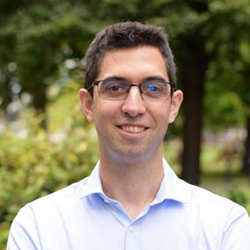Trinity College Dublin, The University of Dublin
Trinity College Dublin (TCD), founded in 1592, offers a world class education where students can work at the highest academic level with some of the most influential people in their field. TCD is recognised internationally as Ireland’s premier university and is ranked 98th in the World by the QS World University Rankings 2023. It is home to 18,000 undergraduate and postgraduate students across all the major disciplines in the arts and humanities, business, law, STEM, and health sciences, and ranked #8 in the ‘most international universities’ (QS 2021). TCD is a member of the prestigious League of European Research Universities (LERU) and has been successful in achieving an Athena SWAN Bronze Award in recognition for its contributions towards gender equality in Higher Education. TCD has considerable success and experience in research funding, especially in EU programmes, having drawn down over €150 million in funding from Horizon 2020.
Computational Catalysis & Energy Materials (CCEM) group
The CCEM group is an interdisciplinary research team with a solid background in chemistry, molecular modelling, physics, nanoscience, and data science. The core expertise of the group lies at the interface between computational homogenous and heterogeneous catalysis with special focus on driving the discovery of cost-effective materials for the sustainable production of chemical fuels and feedstocks. In addition, given the intractability of exploring the vast chemical space using traditional quantum chemical methods, the TCD group applies artificial intelligence to accelerate catalyst discovery. The role of the CCEM group within the ECOMATES project is to develop machine learning algorithms to guide the accelerated design of bimetallic materials for the electroreduction of CO2. The datasets required to train and test the algorithms will be provided by the partners based at the Politecnico di Torino and University of Iceland.
Research Team
The CCEM group is composed of one senior staff member, 1 post-doc and 8 PhD students. The team is expert in the modelling and accelerated catalyst design through advanced quantum chemistry methods and artificial intelligence. Within ECOMATES, the team will host and supervise DC6 and DC8, the latter jointly with VITO. The group leader of the CCEM team is:
 |
Max García-Melchor, Associate Professor in Chemical Energy Systems. He is an expert in the modelling of homogeneous and heterogeneously catalyzed reactions and in computational catalyst design. Within ECOMATES, he will lead the work package aimed at discovering bimetallic catalysts via machine learning.
|
Infrastructure
The CCEM group has generous access to the Irish Centre for High-End Computing (ICHEC), comprised of a cluster of 336 high-performance servers with 13,440 CPUs and 64 TB of memory. It also features 6 large memory nodes with 1.5 TB of memory per server, and 32 accelerator nodes divided between Intel Xeon Phi and NVidia V100 GPUs. The group has also unlimited access to the several local servers, amounting to a total of 2,888 CPUs. These computational resources will be available throughout the entire duration of ECOMATES. In addition, TCD has cutting-edge experimental facilities through the Advanced Materials and BioEngineering Research Centre (e.g. STEM, ultra-high resolution SEM, cleanroom, AFM, Raman, XRD, FT-IR, XPS) which may be available to partners in ECOMATES, if needed.

